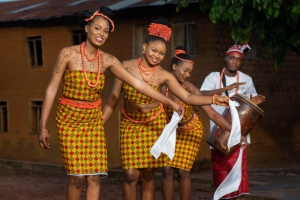When traveling in Eastern and Southern Africa, dressing appropriately and understanding social behavior can help you blend in, show respect, and have a more enjoyable experience. Different regions have varying customs, but here are some general guidelines to keep in mind.
1. Dress Code: Modesty & Practicality
While major cities tend to be more relaxed in terms of dress, rural and traditional areas often have conservative expectations. Dressing appropriately will help you avoid unwanted attention and show respect for local customs.
What to Wear
✅ For Men:
- In urban areas, casual clothing like jeans, trousers, and t-shirts is fine.
- In rural or traditional settings, long trousers and collared shirts are more appropriate.
- Avoid wearing military-style clothing, as this can cause issues with local authorities.
✅ For Women:
- In cities, modern and casual outfits are generally accepted, but overly revealing clothing may attract attention.
- In rural areas, longer skirts, dresses, or loose-fitting pants are recommended.
- In predominantly Muslim areas (such as Zanzibar and parts of Tanzania), covering your shoulders and knees is advised.
✅ For Religious & Cultural Sites:
- Cover shoulders and knees when visiting churches, mosques, and sacred sites.
- In some cultures, removing your shoes before entering a home or place of worship is expected.
✅ For Safaris & Outdoor Activities:
- Wear neutral colors like khaki, beige, or green to blend into natural surroundings.
- Comfortable, breathable clothing and sturdy shoes are essential for safaris and hikes.
🚫 What to Avoid:
- Extremely short shorts, crop tops, or tight outfits in conservative areas.
- Bright colors or camouflage patterns in national parks (camouflage is often associated with military use).
- Flip-flops in public places outside of beaches or pool areas.
2. Social Behavior & Etiquette
Respecting local customs will enhance your interactions and ensure a positive experience. Here are key behavioral norms to follow:
✅ Greetings & Interactions:
- Greetings are important! Always start conversations with a friendly “hello” or local greeting.
- Handshakes are common, sometimes lasting longer than in Western cultures.
- In some areas, greeting elders with a slight bow or lowering your posture is a sign of respect.
✅ Public Behavior:
- Public displays of affection (hugging, kissing) are generally frowned upon, especially in conservative communities.
- Loud or overly animated behavior in public spaces may be considered impolite.
✅ Dining & Hospitality:
- If invited to someone’s home, it’s polite to bring a small gift (such as fruit, tea, or snacks).
- In some cultures, eating with your right hand (rather than utensils) is customary.
- Always wait to be offered food before eating, and showing gratitude after a meal is appreciated.
🚫 Things to Avoid:
- Pointing directly at people—use an open hand instead.
- Taking photos of people without their permission, especially in rural communities.
- Discussing politics or sensitive topics unless invited to do so.
Respect the Culture & Enjoy Your Journey!
By dressing appropriately and being mindful of local etiquette, you’ll have a more immersive and respectful travel experience.








